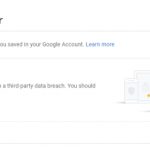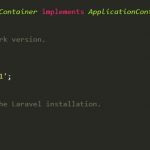Computer audits are not just for businesses. Home computer owners can use the same type of audit to identify potential security risks and take appropriate action. An in-depth examination of your data will help you get more control over your information by identifying any potential security risks, such as viruses or spyware, then taking appropriate action to address them before they cause damage. A thorough inspection of critical files and programs is also a key component in a successful computer audit because, without it, you may be continuing to use programs that have already been corrupted by malware.

Table of Contents
Why Should We Carry Out a Computer Audit?
Since there are many types of software running on our computers from antivirus protection to browsers, PDF readers, and media players; all these different pieces need an independent analysis on their own merits in order to make sure they are working properly.
Other reasons to run an audit on your computer include finding corrupt files that may have become damaged due to system crashes, fixing errors with weak or missing registry entries, and ensuring that proper hardware drivers are installed for any components you might have just added to the computer.
Any of these issues could potentially cause a slowdown in performance, but they can be easily fixed by running a computer audit.
How Do You Audit a Computer?
A typical computer audit includes checking the integrity of all your critical files through manual comparisons with backups to ensure they are functioning correctly, deleting temporary files which build up over time and often slow down performance without us even knowing it, defragmenting hard drives so they work more efficiently, creating regular data back-ups using external storage devices or by burning files to CD/DVD, and finally running an antivirus scan.
Once you have successfully completed these steps, you should then run the program again in order to identify potential security risks that may have been introduced since your last inspection.
Unfortunately, there are no set guidelines for carrying out a computer audit because what you do with your computer is completely up to you. A complete inspection isn’t necessarily required if all you want to do is clean up some temporary files or fix registry errors.
However, if you are considering making changes to the way information is processed on the system through installing new programs or deleting old ones, it will be necessary for you to carry out a computer audit beforehand so that everything works correctly afterward.
As more of our daily lives are being done online, there are new risks emerging all the time which need to be addressed. Being aware of the possible dangers is half the battle when it comes to identifying them, but without performing some type of computer audit, you won’t know if your system has been compromised or what steps you need to take in order to make sure that everything continues running smoothly.
When it comes to security issues on your computer, prevention is better than cure. Take some time out from using your machine for a few hours and perform an audit on it every now and then because by taking proactive measures against potential threats before they occur, you will notice any unusual activity immediately instead of waiting for disaster to strike before taking action.




